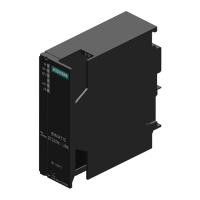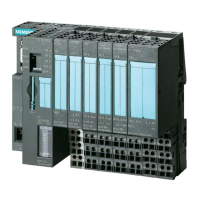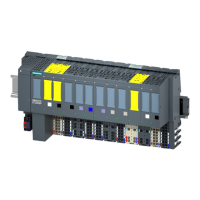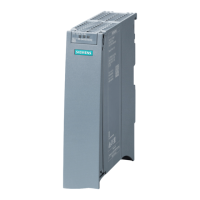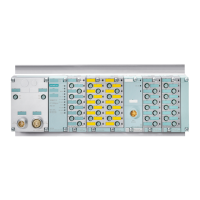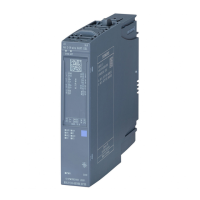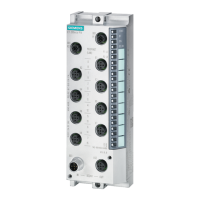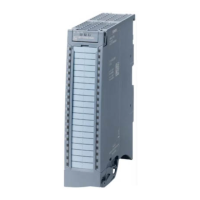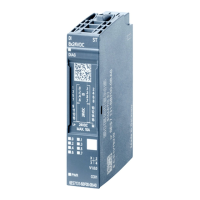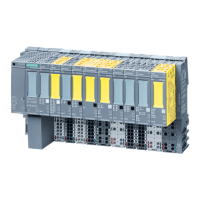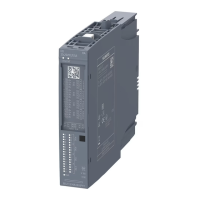Functions
5.9 Standard machine projects
PROFINET with STEP 7 V15
230 Function Manual, 12/2017, A5E03444486-AH
: Once this configuration is loaded, the system behavior is as follows:
● The CPU is prepared for the configuration control of the IO system.
● All IO devices are disabled.
● Irrespective of whether you customize the configuration with the user program (adding
optional IO devices) or make no changes to the loaded configuration: You must call the
instruction "ReconfigIOSystem" in the user program and notify the current configuration to
the system!
The system will not be operational without calling the instruction "ReconfigIOSystem".
For further information on the proceeding see Enabling optional IO devices in the
program (Page 230).
Fast parameter assignment in the "IO communication" table
You can also specify whether or not an IO device is optional in the "IO communication" tab.
In an additional "Optional IO device" column, a selectable check box is available for each IO
device that indicates whether or not an IO device is optional. Here, you can adjust the setting
centrally.
Enabling optional IO devices in the program
Requirements
● IO controller supports configuration control for IO systems, for example CPU
1516-3 PN/DP as of firmware version 1.7
● STEP 7 V13 SP1
● At least one IO device was configured as optional IO device.
● The rules (Page 241) for the establishment and operation of a standard machine project
have been considered.
Observe the information on and rules for commissioning in the documentation for SIMATIC
S7-1500, for the ET 200SP CPUs and for the CPU 1516pro-2 PN.
The following description of the proceeding only includes steps required to understand the
program-controlled activation of an optional IO device.
To activate or deactivate IO devices, follow these steps:
1. Create a data record "CTRLREC" for the instruction "ReconfigIOSystem". You can find
information on the structure of the data record in the STEP 7 online help.
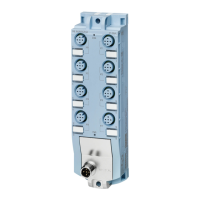
